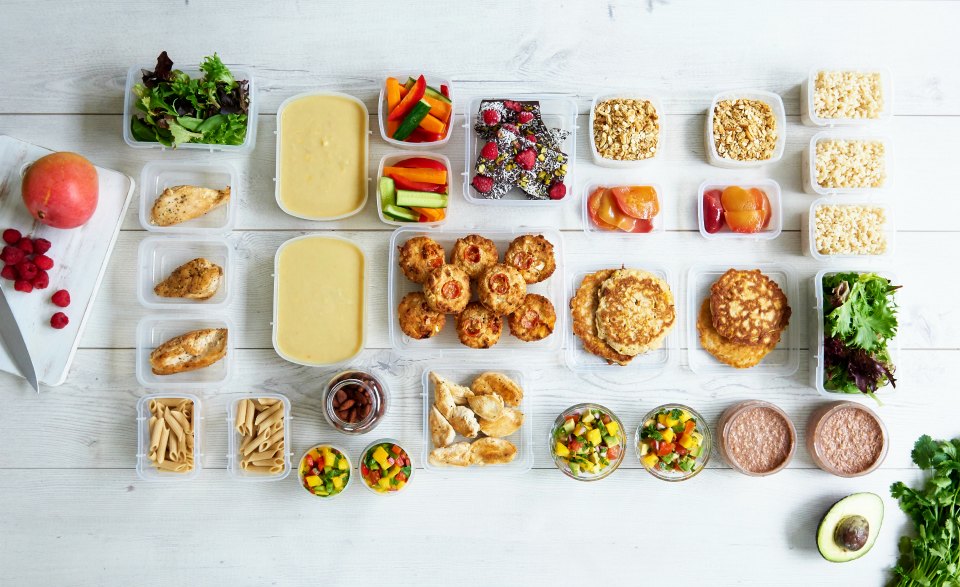Meal Plan to Lose Weight: A Proper Week-by-Week Guide
Embarking on a weight loss journey requires guidance, discipline, and a well-structured plan that aligns with your unique body needs and lifestyle. A weight loss meal plan isn’t merely about cutting calories—it’s about nourishing your body with the right nutrients, in the right proportions, to promote fat loss while preserving lean muscle mass.
This meal plan aims to provide you with balanced, tasty, and satiating meals that cater to a calorie deficit without compromising on essential nutrients. By incorporating a mix of lean proteins, whole grains, healthy fats, and a plethora of fruits and vegetables, you’re set to embark on a journey that not only sheds pounds but also bolsters your overall health. Dive in, savor each bite, and watch the transformation unfold.
Why Meal Planning is Important For Weight Loss

Meal planning is a crucial element in achieving weight loss goals. It empowers individuals to make intentional and healthier choices about what they eat, rather than succumbing to impulsive and potentially unhealthy food decisions. Research shows that those who plan their meals are more likely to consume a balanced diet rich in nutrients, which aids in weight loss. By taking the time to strategize meals in advance, people can ensure they have a variety of healthy options readily available, reducing the temptation to reach for unhealthy snacks or take-out meals.
Additionally, meal planning allows for better portion control. When left to spontaneous decision-making when it comes to food choices, people tend to overeat or consume larger portions than necessary due to hunger or emotional factors. However, with meal planning, portion sizes can be pre-determined based on individual caloric needs and nutritional requirements.
This helps individuals maintain a more consistent calorie intake throughout the day and encourages healthy eating habits that contribute positively towards sustainable weight loss. Overall, investing time and effort into meal planning not only facilitates successful weight loss but also promotes lifelong healthier eating habits.
Week-by-Week Meal Plan to lose weight
Absolutely, creating a week-by-week meal plan to help in lose weight is a great approach to structure your journey. Here’s a basic plan to get you started:
Week 1: Introduction to Healthy Eating
In the first week of your meal plan to lose weight, it is crucial to focus on introducing healthier eating habits into your routine. This week sets the foundation for long-term success and helps you transition from unhealthy eating patterns to a more nourishing lifestyle.
Monday to Sunday:
- Breakfast: Rotate between high-protein options like eggs with vegetables and whole grain toast, and fiber-rich choices like oatmeal topped with fresh fruit and a sprinkle of nuts or seeds.
- Lunch: Focus on lean proteins like grilled chicken or tofu, accompanied by a generous serving of mixed vegetables and a portion of complex carbohydrates like quinoa or brown rice.
- Dinner: Incorporate fish or legumes as your protein source, complemented by a large salad and a serving of whole grains.
- Snacks: Choose between fresh fruits, vegetables with hummus, or a small handful of nuts.
- Tip of the Week: Begin a habit of hydration – aim to drink at least 8 cups of water per day.
Week 2: Exploring New Recipes
Congratulations on completing your first week of the meal plan! By now, you may have noticed a difference in how you feel, both physically and mentally. As we enter Week 2, let’s take things up a notch by exploring new recipes that will not only satisfy your taste buds but also aid in shedding those extra pounds.
Monday to Sunday:
- Breakfast: Experiment with smoothie bowls, incorporating greens like spinach and protein sources like Greek yogurt.
- Lunch: Try different salads with a base of greens, added proteins, and various colorful vegetables.
- Dinner: Experiment with international dishes, incorporating lean proteins and a variety of vegetables.
- Snacks: Experiment with different fruit and nut combinations.
- Tip of the Week: Practice mindful eating – chew your food slowly and savor each bite.
Week 3: Advancing Skills and Varieties
Week 3 of your meal plan is all about advancing your skills in the kitchen and exploring a wider variety of foods. This week, focus on trying new ingredients and flavors to keep your taste buds engaged and prevent boredom from creeping in.
Monday to Sunday:
- Breakfast: Try making homemade granola or protein bars for a quick, nutritious start.
- Lunch: Prepare stir-fries with a mix of vegetables and lean proteins, experimenting with different sauces and spices.
- Dinner: Experiment with different cooking methods like grilling, steaming, or roasting for your proteins and vegetables.
- Snacks: Experiment with making your own vegetable chips or roasted chickpeas.
- Tip of the Week: Plan your meals ahead to avoid last-minute unhealthy choices.
Week 4: Establishing a Sustainable Routine
As you enter the fourth week of your weight loss journey, it’s time to focus on establishing a sustainable routine that will carry you forward. While it can be tempting to rely on restrictive diets or intense workout plans, the key lies in finding balance and making long-term changes. This week, instead of counting calories or cutting out entire food groups, try focusing on portion control and incorporating more whole foods into your meals.
Monday to Sunday:
- Breakfast: Settle your favorite breakfasts from the past weeks and make them part of your routine.
- Lunch: Create a rotation of your favorite lunch recipes, ensuring a balance of macronutrients in each.
- Dinner: Establish a routine of dinner options that you enjoy and can prepare easily.
- Snacks: Stock up on your favorite healthy snacks from the previous weeks.
- Tip of the Week: Reflect on your progress and adjust your meal plan as necessary to continue towards your weight loss goals.
Final Thoughts
In conclusion, following a meal plan can be an effective strategy for losing weight. By carefully selecting nutritious and low-calorie foods, monitoring portion sizes, and staying consistent with the plan, individuals can create a calorie deficit and achieve their weight loss goals. Additionally, incorporating regular exercise into the routine can further enhance the results.
It is important to remember that meal planning should be personalized to fit individual needs and preferences. Consulting with a registered dietitian or nutritionist can provide additional guidance and support throughout the weight loss journey. Start today and take control of your health by implementing a well-structured meal plan tailored to your specific needs and goals.
FAQs
What foods should I include in a weight loss meal plan?
Include plenty of fruits, vegetables, lean proteins, whole grains, and healthy fats like avocados or nuts. Limit processed foods, sugary treats, and high-fat items.
Will I have to give up my favorite foods completely?
No, you don’t have to give up your favorite foods entirely. A balanced meal plan allows for occasional indulgences while prioritizing nutritious options for overall health and weight loss.
Is exercise necessary while following a meal plan for weight loss?
Although exercise is not mandatory for weight loss, combining regular physical activity with a healthy meal plan can enhance results by increasing calorie burn and improving overall fitness.







